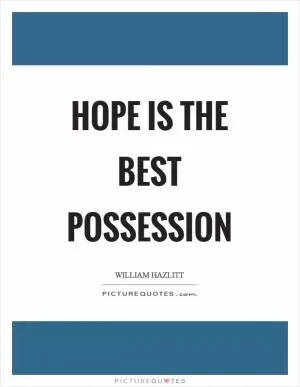To think ill of mankind and not wish ill to them, is perhaps the highest wisdom and virtue

To think ill of mankind and not wish ill to them, is perhaps the highest wisdom and virtue
William Hazlitt, a renowned English writer and philosopher, was known for his insightful observations on human nature and society. One of his most famous quotes, “To think ill of mankind and not wish ill to them, is perhaps the highest wisdom and virtue,” encapsulates his complex understanding of the human condition.Hazlitt believed that it was natural for individuals to have negative thoughts about others, as human beings are inherently flawed and prone to selfishness and cruelty. However, he also recognized the importance of rising above these negative impulses and cultivating a sense of compassion and empathy towards others. In his view, true wisdom and virtue lie in the ability to acknowledge the darker aspects of human nature while still striving to treat others with kindness and understanding.
This idea is particularly relevant in today’s world, where social media and the 24-hour news cycle often amplify the worst aspects of human behavior. It can be easy to become cynical and jaded, to lose faith in the inherent goodness of humanity. However, Hazlitt’s words remind us that it is possible to hold a realistic view of human nature while still maintaining a sense of hope and optimism.
Hazlitt’s philosophy also speaks to the importance of forgiveness and redemption. By choosing not to wish ill on others, even those who have wronged us, we demonstrate a capacity for grace and understanding that can ultimately lead to healing and reconciliation. In a world that is often marked by division and conflict, this ability to rise above our baser instincts and extend a hand of compassion to others is truly a rare and precious gift.












 Friendship Quotes
Friendship Quotes Love Quotes
Love Quotes Life Quotes
Life Quotes Funny Quotes
Funny Quotes Motivational Quotes
Motivational Quotes Inspirational Quotes
Inspirational Quotes